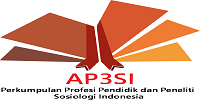Malan: Farming Practices of the Bakumpai People in the Tidal Lands of South Kalimantan Province
DOI:
https://doi.org/10.24036/scs.v11i2.664Keywords:
Agriculture, Bakumpai people, Dayak, TidalAbstract
The public's view of a particular ethnic group is often one-sided and incomplete. The principal objective of this article is to present a rationale for the continued existence of the Bakumpai people, who engage in rice farming in the tidal lands of South Kalimantan Province. The author conducted participant observation by residing in the village for several months and engaging in direct observation of farming activities daily. Interviews were conducted in the form of conversational interviews, in which questions and answers were posed, as well as informal discussions held in a local shop. A review of the literature was also conducted, encompassing online media, articles related to agriculture and local terms, and books related to the Bakumpai people. An ethnographic approach was employed to examine the environmental possibility of Bakumpai farmers, yielding two key findings. First, The Dayak Bakumpai people have been studied before, but their practices have been overlooked because they are similar to the Banjar people's tidal farming. Second, the Bakumpai people can find good places for farming, even if they are far apart. They also have a farming cycle that lasts one year.
Downloads
Downloads
Published
Issue
Section
License
Copyright (c) 2024 Jurnal Socius: Journal of Sociology Research and Education

This work is licensed under a Creative Commons Attribution-ShareAlike 4.0 International License.











